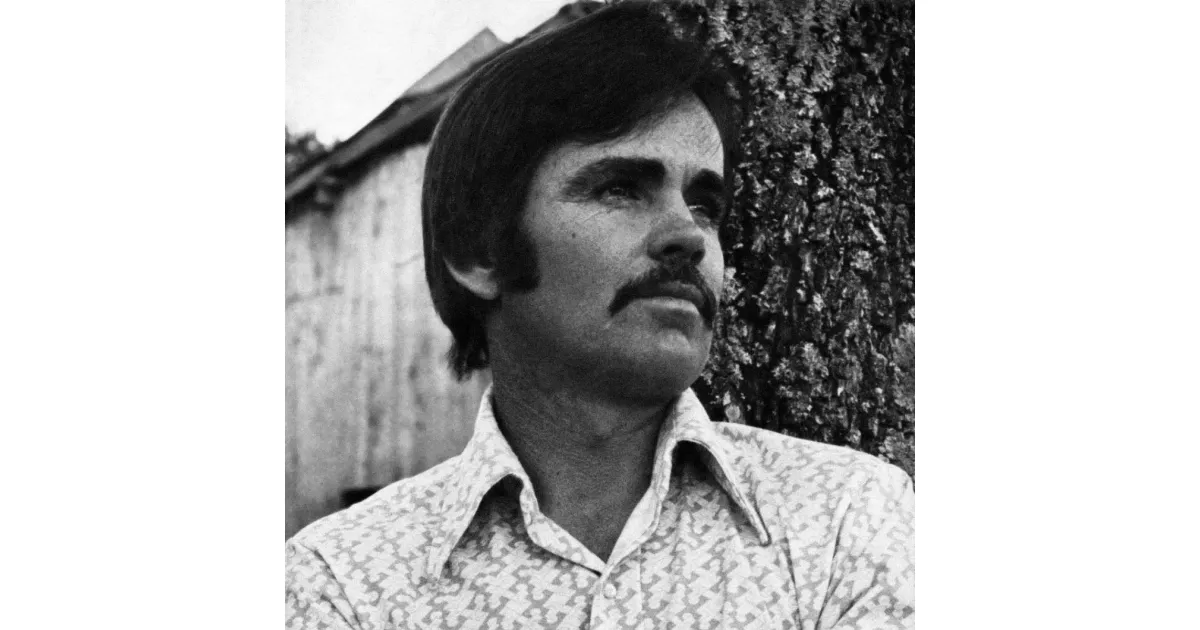From career breakthroughs to professional milestones, explore how Cormac McCarthy made an impact.
Cormac McCarthy was a celebrated American author known for his novels spanning Western, post-apocalyptic, and Southern Gothic genres. Characterized by graphic violence and a distinctive writing style featuring sparse punctuation and attribution, his works have secured his reputation as one of the greatest American novelists. He authored twelve novels, alongside plays, screenplays, and short stories.
1928: Inspiration for Screenplay
In 1928, a biography of William Gregg, a pre-Civil War industrialist, provided inspiration for McCarthy's screenplay
1957: Returns to University of Tennessee
In 1957, McCarthy returned to the University of Tennessee, majoring in English and publishing stories in the student literary magazine.
1965: Publication of The Orchard Keeper
In 1965, McCarthy's debut novel, The Orchard Keeper, was published.
1968: Publication of Outer Dark
In 1968, McCarthy's second novel, Outer Dark, was published after he traveled to southern Europe to write it.
1973: Publication of Child of God
In 1973, McCarthy wrote Child of God while living in a barn, which was set in southern Appalachia.
1974: Contacted to Write Screenplay
In 1974, Richard Pearce of PBS contacted McCarthy and asked him to write the screenplay for an episode of Visions.
1975: Researching Industrialization in the South
Beginning in early 1975, McCarthy and Pearce spent a year traveling the South to research the subject of industrialization there for a PBS episode.
1976: Completes The Gardener's Son Screenplay
In 1976, McCarthy completed the screenplay for The Gardener's Son.
January 6, 1977: The Gardener's Son Aired
On January 6, 1977, McCarthy's episode, titled The Gardener's Son, aired on Visions.
1979: Publishes Suttree
In 1979, McCarthy published his semiautobiographical Suttree, based on his experiences in Knoxville on the Tennessee River.
1985: Publication of Blood Meridian
In 1985, McCarthy published Blood Meridian, a violent novel that has grown in literary stature.
1992: Success with All the Pretty Horses
In 1992, McCarthy achieved widespread success with All the Pretty Horses, receiving the National Book Award and the National Book Critics Circle Award.
1992: Joins Alfred A. Knopf
In 1992, McCarthy joined Alfred A. Knopf after Albert Erskine retired, and he agreed to his first interview with The New York Times.
1993: Shift in writing style after 1993
After 1993, the majority of McCarthy's work used simple, restrained vocabulary, contrasting with his earlier works like Suttree and Blood Meridian.
1994: Publication of The Crossing
In 1994, McCarthy published The Crossing, continuing The Border Trilogy.
1995: The Stonemason First Performed
In 1995, McCarthy's second dramatic work, The Stonemason, was first performed.
1996: McCarthy edits W. Brian Arthur's article
In 1996, McCarthy edited W. Brian Arthur's article "Increasing Returns and the New World of Business" for the Harvard Business Review, removing commas from the text.
1998: Publication of Cities of the Plain
In 1998, McCarthy published Cities of the Plain, completing The Border Trilogy.
2005: Publication of No Country for Old Men
In 2005, McCarthy published No Country for Old Men, originally conceived as a screenplay.
2006: Publication of The Road
In 2006, McCarthy published The Road, a post-apocalyptic novel.
2006: Publishes The Sunset Limited
In 2006, McCarthy published the play The Sunset Limited, also subtitled as a "novel in dramatic form".
December 2009: Olivetti Lettera 32 typewriter auctioned
In December 2009, McCarthy's Olivetti Lettera 32 typewriter was auctioned at Christie's for $254,500, with proceeds donated to the Santa Fe Institute. He replaced it with an identical model.
2012: Screenplay "The Counselor" sold; Production finished
In 2012, Cormac McCarthy sold his original screenplay "The Counselor". The production of the film, directed by Ridley Scott, was also finished in 2012.
October 25, 2013: Release of "The Counselor"
On October 25, 2013, the film "The Counselor", based on McCarthy's screenplay, was released to polarized critical reception.
2015: Announcement of "The Passenger"
In 2015, McCarthy's novel, "The Passenger", was announced at a multimedia event hosted by the Lannan Foundation in Santa Fe.
2017: Publication of "The Kekulé Problem"
In 2017, McCarthy published his first piece of nonfiction writing, an essay entitled "The Kekulé Problem", analyzing August Kekulé's dream and theorizing about the unconscious mind and origins of language.
March 2022: Report of release dates for "The Passenger" and "Stella Maris"
In March 2022, The New York Times reported that "The Passenger" would be released on October 25, 2022, and "Stella Maris" on November 22, 2022. "Stella Maris" was noted to be McCarthy's first novel since Outer Dark to feature a female protagonist.
October 25, 2022: Publication of The Passenger
On October 25, 2022, McCarthy's novel, The Passenger, was published.
December 6, 2022: Publication of Stella Maris
On December 6, 2022, McCarthy's novel, Stella Maris, was published.
2024: Hillcoat discusses 'Blood Meridian' adaptation with McCarthy
In 2024, John Hillcoat mentioned that he and McCarthy spent extended time discussing the film adaption of Blood Meridian.
Mentioned in this timeline

A typewriter is a mechanical or electromechanical machine used for...

Oprah Winfrey is an influential American talk show host television...
Arizona is a landlocked state in the Southwestern U S...

Chicago is the most populous city in Illinois and the...

Books are a means of storing information as text or...
Texas the second-largest US state by area and population is...
Trending

50 minutes ago Wall Street and Defense Stocks React to US Attacks on Iran, Lockheed Martin involved
50 minutes ago Columbus City Schools face budget issues and educational future is being tracked.
2 hours ago Indiana Weather: Snow overnight, then rain, storms, and a colder March start.
3 hours ago Winter Weather Advisory: Rain, Snow, and Wintry Mix Expected Overnight, Causing Travel Concerns
4 hours ago Turkey's economic growth slows in 2025; faces major shocks, expert warns.

4 hours ago Teodora Kostovi?, 18, Dominates in Antalya, Achieving Career-Best Ranking After defeating Bulgarian player.
Popular

Jesse Jackson is an American civil rights activist politician and...

Hillary Diane Rodham Clinton is a prominent American politician lawyer...

XXXTentacion born Jahseh Dwayne Ricardo Onfroy was a controversial yet...

Jim Carrey is a Canadian-American actor and comedian celebrated for...

Kashyap Pramod Patel is an American lawyer who became the...

Michael Joseph Jackson the King of Pop was a highly...
